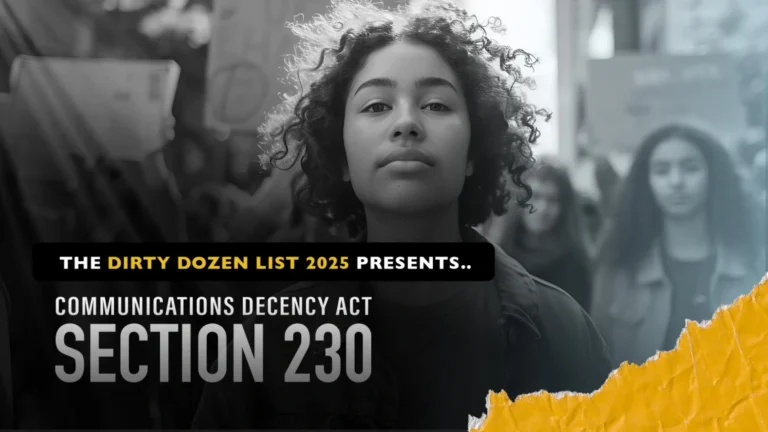Attending the National Symposium on Sexual Behavior of Youth (NSSBY) this past June brought into stark view what I consider to be the greatest social irony of our time: that while children have unprecedented access to hardcore Internet pornography, not only are we horrified when children act out what they’ve seen on other children, our knee-jerk reaction is to criminalize the “offending” child. It’s hard to understand how we can criminalize children—especially with lifelong inclusion on the sex offender registry—for pornography-inspired behavior they’ve seen on the Internet. Behavior they don’t fully comprehend and which they mimic in much the same way that children mimic other behaviors.
The real blame in such cases rests on us, not on the children involved. We have allowed our society to become inundated with sexually explicit media and hardcore pornography. We have given our children unfettered access to this material via Internet-connected devises. We have allowed the hugely profitable entertainment and video game industries to push sexually explicit and violent themes to our youth. We have failed to teach to children, in age-appropriate ways, about sex and healthy sexual relationships. In this kind of environment, it’s inevitable that some children will act out in ways that are sexually problematic and even illegal.
Problematic Sexual Behavior
The experts presenting at NSSBY made very clear that children aged 6 to 12 who engage in problematic sexual behaviors (PSB) are not motivated by sexual urges like adult sex offenders, but instead are typically acting out of anxiety, anger, or curiosity, reacting to trauma, seeking attention, seeking to self-calm, or are imitating others.[1] Some sexual behaviors are a typical part of child development (such as “playing doctor”), but become problematic when they are planned, happen frequently, involve children with wide age ranges, physical size, and developmental levels, or are accompanied by feelings of anger, fear, or coercion.[2] The types of sexual behaviors children may engage in range from self-touching, exposure, peeping, fondling, and sexual intercourse. Importantly, if a child has engaged in PSB it does not mean that the child is a “predator” or a “psychopath.”
The Solution
As many experts explained, children with PSB typically respond very well to cognitive behavior therapy (CBT), especially when parents are actively involved in their child’s therapy program. Oklahoma University’s Health Sciences Center runs the “PSB Program for Children,” and reports that with therapy most children with PSB can safely remain in-home settings and that recidivism is very low. The program, established in the 1990s, incorporates highly structured and interactive group therapy, as well as rules-based learning, teaching “Private Parts Rules” for preschool-aged children and “Sexual Behavior Rules” for school-aged children. In other parts of the U.S., some Children’s Advocacy Centers are working to develop similar programs based on the OU’s program model.
It was truly inspiring to learn about the pioneering work of OU’s PSB Program for Children and to learn that for most children with PSB their behaviors can be corrected if they are provided treatment by qualified professionals and supported emotionally by loving caregivers.
Join Our Efforts
As NCOSE moves forward with its efforts to combat child-on-child sexual abuse, we will undoubtedly draw from the information we learned by attending the NSSBY to inform our policy and advocacy framework. We will also continue our efforts promote prevention of PSB among children by doing all we can to protect children from exposure to pornography given its clear role in catalyzing some children’s PSB.
To help equip parents, educators, school administrators, and policymakers to address the challenges, the National Center on Sexual Exploitation is hosting a national Symposium on October 9-10, 2018, “Out of the Shadows: Confronting the Rise of Child-on-Child Harmful Sexual Behavior”
This symposium is being held in collaboration with the National Catholic School of Social Service at The Catholic University of America and Protect Young Minds.

[1] Jane Silovsky, “Taking Action: Support for Families of Children with Sexual Behavior Problems,” (Brandon, Vermont: Safer Society Press, 2009).
[2] Ibid.


